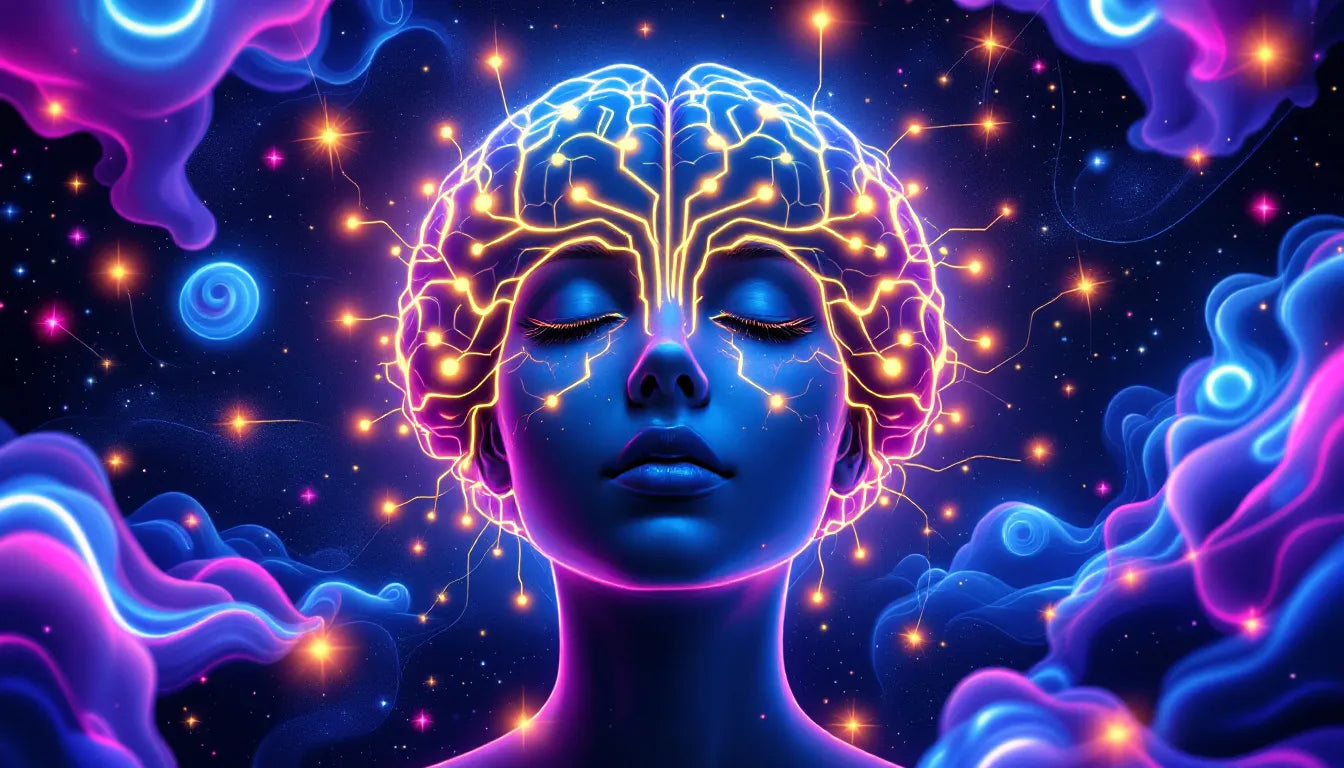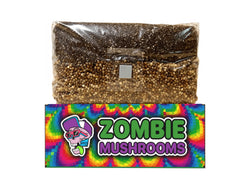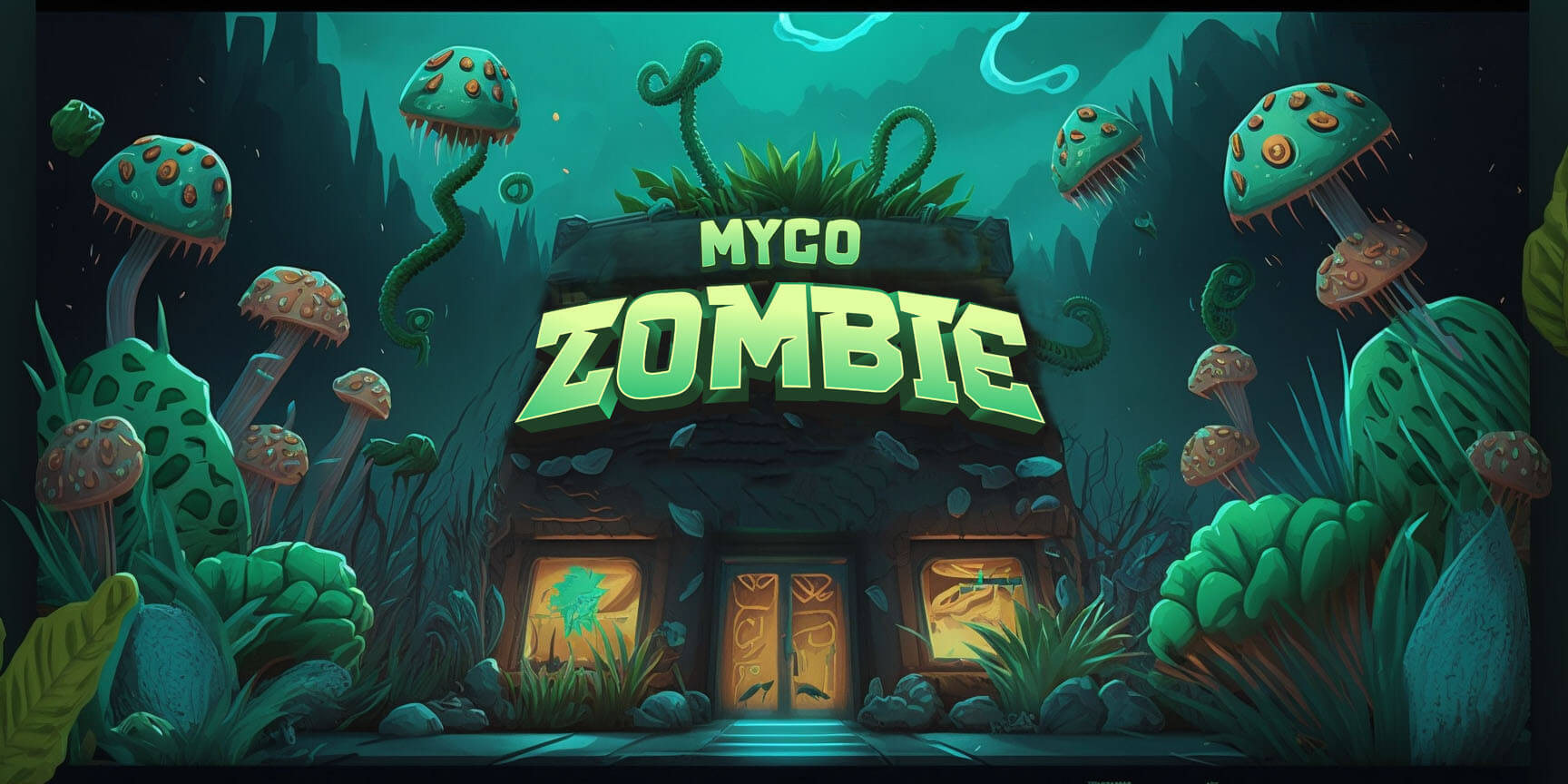- Psychedelic drugs primarily exert their effects by activating the serotonin 2A receptor, influencing perception and mood.
- Clinical trials suggest up to 80% of participants experience long-term mental health improvements with psychedelics.
- The hallucinogenic effects of traditional psychedelics pose challenges, limiting their widespread therapeutic application.
- Researchers are developing non-hallucinogenic psychedelic-like drugs that may offer similar mental health benefits.
- Further studies will determine if hallucinations are necessary for psychedelics' full therapeutic effects.
How Psychedelic Drugs Affect the Brain
Psychedelic drugs such as LSD, psilocybin, and DMT function by interacting with the brain’s serotonin system, particularly through a key protein called the serotonin 2A receptor. This receptor plays a central role in regulating cognition, mood, and perception (Nichols, 2016). When psychedelic compounds bind to these receptors, they disrupt normal neural communication, leading to altered states of consciousness.
This effect is believed to create a "reset" mechanism in the brain, helping individuals break free from rigid thought patterns that contribute to conditions like depression, anxiety, and PTSD. Neuroimaging studies have shown that psychedelics increase connectivity between different brain regions, leading to enhanced cognitive flexibility and emotional processing.

Traditional Psychedelics and Their Effects on Mental Health
Over the last decade, research has increasingly supported the idea that classical psychedelics—such as psilocybin and LSD—possess potent therapeutic properties. Clinical trials have demonstrated
- Psilocybin-assisted therapy led to significant reductions in depression symptoms, with effects lasting up to a year (Carhart-Harris & Goodwin, 2017).
- MDMA-assisted therapy for PTSD resulted in remission rates exceeding 60% in phase 3 clinical trials.
- LSD has shown promise in reducing alcohol dependence and social anxiety in therapeutic settings.
These breakthroughs suggest that psychedelics may provide long-term relief for patients who have not responded to conventional treatments. However, one major challenge remains: the hallucinogenic experience itself. While some report spiritual and emotionally insightful experiences, others may encounter distressing hallucinations, disorientation, or paranoia, deterring many from exploring psychedelic-assisted treatments.

Can You Have Psychedelic Benefits Without the Hallucinations?
The central question in psychedelic medicine today is whether the benefits of these substances can be maintained without inducing profound hallucinations.
Scientists have discovered that certain psychedelic-like compounds can activate the serotonin 2A receptor without triggering the intense visual and cognitive distortions associated with classic psychedelics. This finding has led to the development of non-hallucinogenic psychedelic therapeutics, which might retain the core mental health benefits while eliminating the risk of overwhelming perceptual changes.
Animal studies have already shown that some of these new compounds can reduce depressive and anxious behaviors while avoiding the psychedelic trip. Researchers believe that the therapeutic effects of psychedelics may stem from their ability to enhance neural plasticity and reset negative thought patterns, rather than from hallucinations themselves.
Advantages of Non-Hallucinogenic Psychedelic Drugs
If non-hallucinogenic psychedelics prove effective, they could drastically transform mental health treatment. Some potential benefits include
- Increased accessibility: Many people who are hesitant about experiencing hallucinations may feel more comfortable with these alternative compounds.
- Lower risk of adverse experiences: Classic psychedelics can sometimes cause severe emotional distress, making treatment unpredictable. A non-hallucinogenic option could mitigate this risk.
- Scalability in mental health care: Psychedelic-assisted therapy currently requires trained professionals and controlled settings. Non-hallucinogenic alternatives might allow for at-home or outpatient treatment, expanding accessibility.
Scientific Debate: Are Hallucinations an Essential Part of Healing?
Despite these advantages, there is ongoing debate about whether the hallucinations caused by psychedelics are crucial to their therapeutic effects. Some researchers argue that the profound, transcendent experiences enabled by traditional psychedelics contribute significantly to their ability to help patients process trauma and reframe life challenges (Reiff et al., 2020).
A study on psilocybin therapy found that patients who had "mystical experiences" reported greater long-term improvements in depressive symptoms. This raises concerns that removing hallucinations might also strip away a critical layer of emotional insight.
Others counter that it is not the hallucinations themselves, but rather the underlying neurochemical changes—such as increased synaptic plasticity—that drive improvements in mental health. If non-hallucinogenic versions can produce the same brain changes without the altered states of awareness, they could provide a more practical and widely accepted treatment option.

Challenges in Implementing Non-Hallucinogenic Psychedelics
Despite their promise, non-hallucinogenic psychedelic drugs face many hurdles before becoming mainstream treatments
- Regulatory Approval: Government agencies such as the FDA and DEA still classify psychedelics as Schedule I substances, meaning they are considered to have no accepted medical use. Convincing regulators that non-hallucinogenic versions have valid therapeutic applications will require extensive clinical trials.
- Prolonged Research Timelines: Unlike psilocybin and MDMA, which are already advancing in clinical trials, these new psychedelic-like drugs will need to go through years of safety and efficacy testing.
- Medical Community Skepticism: Many psychiatrists and neuroscientists remain cautious, questioning whether these drugs can truly replicate the transformative effects of traditional psychedelics.
- Pharmaceutical Development Challenges: Finding the right balance—compounds that bind to the serotonin 2A receptor to induce neuroplasticity without triggering hallucinations—requires highly specific chemical modifications.
Psychedelic Medicine: A New Wave in Mental Health Treatment
Regardless of whether future treatments focus on traditional psychedelics or non-hallucinogenic alternatives, the rapid progress in this field signals a monumental shift in mental health care.
- Psilocybin, MDMA, and LSD are already being studied as legitimate medical treatments.
- New psychedelic-inspired drugs may provide safer, scalable mental health solutions.
- Regulatory bodies are increasingly warming up to psychedelic-assisted therapies, paving the way for mainstream acceptance.
One thing is clear: psychedelic-based mental health treatments are here to stay, and continued research will decide whether hallucinogenic experiences are an essential part of their effectiveness or if novel compounds can revolutionize psychiatric care without the trip.

The Role of Psychedelic Research in Modern Medicine
Companies and researchers worldwide, including organizations like Zombie Mushrooms, are pushing the boundaries of psychedelic medicine. As funding for psychedelic research increases, we may soon witness an era where mental health treatment includes personalized therapies using both hallucinogenic and non-hallucinogenic psychedelics.
By balancing innovation with scientific rigor, psychedelic-assisted treatments have the potential to reshape how we approach mental health, trauma, and emotional well-being—creating new opportunities for healing without fear of the psychedelic experience itself.
Citations
- Carhart-Harris, R. L., & Goodwin, G. M. (2017). The therapeutic potential of psychedelic drugs: Past, present, and future. Neuropsychopharmacology, 42(11), 2105–2113. https://doi.org/10.1038/npp.2017.84
- Nichols, D. E. (2016). Psychedelics. Pharmacological Reviews, 68(2), 264–355. https://doi.org/10.1124/pr.115.011478
- Reiff, C. M., Richman, E. E., Nemeroff, C. B., Carpenter, L. L., Widge, A. S., Rodriguez, C. I., Kalin, N. H., & McDonald, W. M. (2020). Psychedelics and psychedelic-assisted psychotherapy. American Journal of Psychiatry, 177(5), 391–410. https://doi.org/10.1176/appi.ajp.2019.19010035




